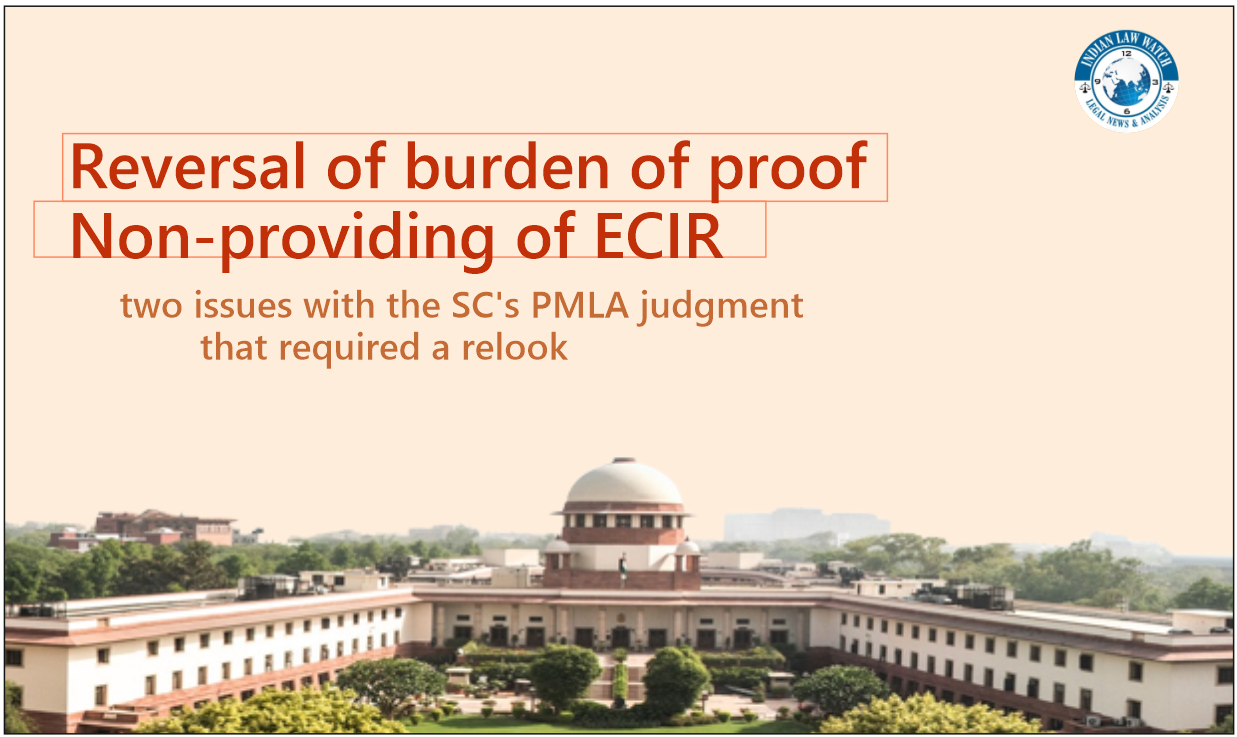

The interim protection granted, which was set to expire soon, has also been extended by another four weeks.
A Supreme Court bench led by Chief Justice of India NV Ramana on Thursday, 25 August, heard a petition against the apex court’s landmark judgment dated 27 July, which had upheld the constitutional validity of provisions under the Prevention of Money Laundering Act (PMLA), 2002.
Stating that the objective of the judgment was noble, the bench said that there were two issues with the apex court’s PMLA judgment that prima facie required a relook:
-
Regarding the non-providing of ECIR
-
Reversal of burden of proof and presumption of innocence
The interim protection granted, which was set to expire soon, has also been extended by another four weeks.
“We are not opposing any of the actions of the government to stop money laundering…(and) control the circulation of black money. It is definitely a serious thing,” the Supreme Court said, while also pointing out that the two issues mentioned above required further consideration.
The matter is now to be listed before an appropriate bench, as per CJI Ramana’s directions.
On Wednesday, a bench led by CJI Ramana passed an order permitting open court hearing in the review petition filed regarding the judgment upholding the provisions of the Prevention of Money Laundering Act (PMLA), 2002.
The plea had been filed on Monday by Congress lawmaker Karti Chidambaram.

The case was heard by a bench comprising Chief Justice of India NV Ramana, Justice Dinesh Maheshwari, and Justice CT Ravikumar.
The crucial plea was heard on the penultimate working day of CJI Ramana, whose tenure as chief justice is set to end.

Justice Khanwilkar’s PMLA Judgment
On 27 July, a bench headed by Justice AM Khanwilkar had upheld the constitutional validity of provisions of the PMLA, including strict bail conditions in money-laundering cases, in variance to previous Supreme Court judgments.
Other provisions related to arrests, search, seizure, attachment, and admitting statements made to the Enforcement Directorate (ED) as evidence and the non-requirement to supply an Enforcement Case Information Report (ECIR) were also upheld.
The Union government has been insisting that money laundering is an offence that is committed not only by unscrupulous businesspersons but also terror organisations, posing a grave threat to national security.
After the contentious ruling, several Opposition parties, including Trinamool Congress (TMC), Congress, DMK, Aam Admi Party (AAP), Shiv Sena, and others had issued a joint statement noting that the amendments have made it more conducive for the government to engage in political vendetta.
“We place on record our deep apprehension on the long-term implications of the recent Supreme Court judgement upholding (PMLA),” the statement read.
Source : The Quint





